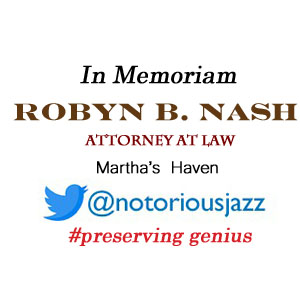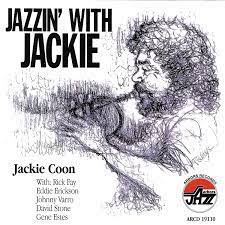
Daily Dose Of Jazz…
Jackie Coon was born in Beatrice, Nebraska on June 21, 1929 and grew up in Southern California. He was inspired to play trumpet after hearing Louis Armstrong’s West End Blues. He spent a few months with Jack Teagarden’s band and had gigs with Charlie Barnet, Louis Prima, and Earl Hines.
Making his recording debut with Barney Bigard in 1957 and he also played the mellophone on Red Nichols’ version of Battle Hymn of the Republic. Jackie’s decision to stay in California cost him the fame that eluded him, but he worked at Disneyland for nine years, and performed regularly in local clubs and jazz festivals.
It was until 1986 that Coon led his first record session for Sea Breeze. Since 1991 he has recorded fairly often for Arbors. Trumpeter, flügelhornist and cornetist Jackie Coon has become less active in his Eighties.
More Posts: bandleader,cornet,flugelhorn,history,instrumental,jazz,music,trumpet

Daily Dose Of Jazz…
Buddy Petit was born Joseph Crawford on May 25, 1897 in White Castle, Louisiana. His early life is somewhat mysterious but he was adopted by trombonist Joseph Petit, whose name he took.
Taking Freddie Keppard’s place in the Eagle Band, a place earlier held by Buddy Bolden, when Keppard left town. Briefly lured to Los Angeles, California by Jelly Roll Morton and Bill Johnson in 1917, but objecting to being told how to dress and behave differently from what he was accustomed to he returned to New Orleans, Louisiana.
Buddy spent the rest of his career in the area around greater New Orleans and the towns north of Lake Pontchartrain, not venturing further from home than Baton Rouge and the Mississippi Gulf Coast.
Okeh Records offered him a chance to record on their 1925 field trip to New Orleans, but Petit held out for more money and was never recorded. Danny Barker and Louis Armstrong said that it was a great loss to jazz history that there are no recordings of Petit.
After over-indulging in food and drink, cornetist Buddy Petit, which was sometimes spelled Buddie, transitioned on July 4, 1931.
More Posts: cornet,history,instrumental,jazz,music
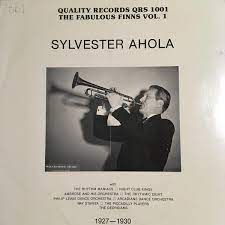
Daily Dose Of Jazz…
Sylvester Ahola was born on May 24, 1902 in Gloucester, Massachusetts. His parents, Sophia and John Ahola, were born in Finland. He became most popular in England rather than the United States.
He first began performing with Frank Ward and His Orchestra. In 1925 he started playing with Paul Specht and His Orchestra, with whom he did a two-month-long tour of England that following year. For the next couple of years he performed with bands like The California Ramblers and Adrian Rollini and his band.
1927 saw Ahola moving to England and landing a job playing with the Savoy Orpheans. He went on to gig with Bert Firman and Bert Ambrose. The British Musicians’ Union, unhappy to see a foreigner land so many jobs and attain so much success, effectively prohibited him from playing with anyone other than Bert Ambrose. This forced him to eventually leave in 1931 and return to New York City.
Throughout the rest of his career he never again achieved the level of success he had enjoyed during his time in England. Trumpeter and cornetist Sylvester Ahola, also known as Hooley, transitioned on February 13, 1995.
More Posts: bandleader,cornet,history,instrumental,jazz,music,trumpet
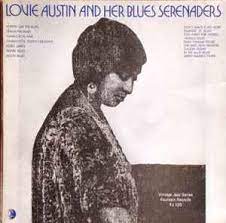
Daily Dose Of Jazz…
Bob Shoffner was born on April 4, 1900 in St. Louis, Missouri. Growing up he played drums and bugle before settling on trumpet at age eleven. Playing trumpet in a military band, he served in the U.S. Army from 1917-1919, and after his discharge he played with Charlie Creath and Tommy Parker in territory bands.
Relocating to Chicago, Illinois in 1921, Bob played with John H. Wickcliffe, Everett Robbins, and Mae Brady. He returned to St. Louis, served briefly under Creath before heading back to Chicago to play with Honore Dutrey. Then, in 1924,he replaced Louis Armstrong in King Oliver’s Creole Jazzband, playing with Oliver until 1927. He went on to spend time with Dave Peyton and Lottie Hightower during this time as well, and recorded with Lovie Austin, Jimmy O’Bryant, Ida Cox, and Luis Russell.
Shoffner suffered a lip ailment in 1927, but returned after a few months to hit with Charles Elgar in 1928, Erskine Tate, Jerome Carrington, McKinney’s Cotton Pickers in 1931, and Frankie Jaxon in ‘32. A move to New York City in 1934, had him with Fess Williams, Fletcher Henderson, and Hot Lips Page towards the end of the decade..
Around 1940 he returned once more to Chicago and took a job working for the state but recorded with Richard M. Jones in the middle of the 1940s. Taking a hiatus from music until 1957he came back to play with Franz Jackson’s Original Jazz All-Stars from 1957 to 1963.
Health concerns forced him into semi-retirement after this time. Trumpeter Bob Shoffner transitioned on March 5, 1983.
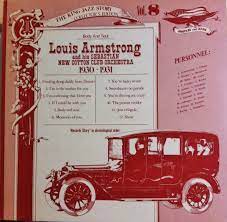
Daily Dose Of Jazz…
George Robert Orendorff was born on March 18, 1906 in Atlanta, Georgia but when he was nine years old his family moved to Chicago, Illinois. His early musical years were spent learning the guitar before picking up cornet and spending his high school days with fellow students Eddie South, Wallace Bishop and Lionel Hampton. He began his career at 17, playing in Chicago dance bands, one of them led by Detroit Shannon.
Following a 1925 tour with the Helen Dewey Show, the revue dumped him in Los Angeles, California where he played with Paul Howard from 1925 to 1930. He then played with Les Hite for most of the 1930s and recorded with Louis Armstrong from 1930 to 1931. In the 1940s he accompanied Ceele Burke, and after his WWII army service, he became a post officer and an official in the American Federation of Musicians. George also recorded on the West Coast Jazz and Rhythm and Blues scene and continued to play with Les Hite.
Later in his career he worked with Maxwell Davis, Ike Lloyd, and T-Bone Walker among others. Trumpeter George Orendorff transitioned on June 28, 1984 in Los Angeles.




